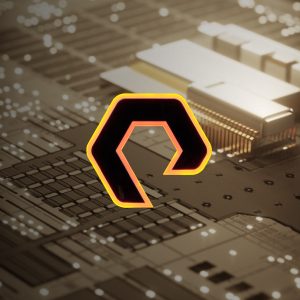End-user computing (EUC) is the set of technologies, policies, and processes that provides users remote access to the data, apps, and services they need to work remotely. In a nutshell, EUC allows organisations to reap all the benefits of remote work, without compromising on security or performance.
Why Is End-user Computing Important?
Remote connectivity for business networks was once merely a convenience to enable work by traveling employees. It’s become an essential capability for organisations seeking to increase productivity, agility, and resilience, and to offer workers greater flexibility.
How Does End-user Computing Work?
In end-user computing, company data and applications reside in the cloud and are accessed by workers through virtual desktop infrastructure (VDI) that can be used on any device. Both the VDI and the applications can be used as a service. The experience provided by VDI and applications is standardized for all workers regardless of device or location.
Which Technologies Enable End-user Computing?
The following technologies are used in end-user computing:
- Virtualisation through virtual machines and containers allows organisations to abstract away the details of their underlying infrastructure and implement EUC solutions that can operate agnostic of the end user’s hardware.
- Cloud/Hybrid Architectures give organisations more options for hosting, storage, and delivery of services.
- VDI uses the cloud to enable provisioning and management of individual desktop environments at scale from a centralized platform, accessible from anywhere on any internet-connected device. As this technology has matured, such platforms are available as a service to customers that want a smaller infrastructure footprint of their own and a smaller IT department.
- Cloud-based software, delivered as a service (SaaS), completes the stack for end-user computing. As with VDI, placing resources and software in the cloud enables end users and their IT departments to do more with less hardware.
What Are the Benefits of End-user Computing?
Some of the benefits of end-user computing include:
Mobility and flexibility. A core benefit of end-user computing is the ability to support individual workers or entire departments or workforces regardless of location.
Security. Since end-user computing services are stored in the cloud and centrally managed, the most sensitive data is stored there as well, reducing the vulnerabilities associated with user devices. Centralized management also makes it easier to respond quickly to incidents and to diagnose them afterward. As long as a robust authentication process is maintained, better security is an advantage for end-user computing.
Agility. End-user computing provides the ability to rapidly scale up and down and provision VDI to new workers wherever they happen to be. Just as important for IT departments, end-user computing allows tech teams to easily introduce new applications, and update, test, and iterate old ones.
Cost. End-user computing provides savings through simplified centralized management and the ability to right-size provisioning based on actual use and need, rather than making a big up-front investment. In addition, providing workers with only thin-client devices—or allowing them to use their own—provides savings on hardware.
Collaboration. The benefits of end-user computing for collaboration overlap those of cloud computing, such as easy and secure sharing, simplified version control, and the ability to support both synchronous and asynchronous work.
Application/OS management. Tracking and maintaining software licenses can be complex and time-consuming. End-user computing simplifies the process by decoupling licencing from end users and allowing for centralized licence management. End-user computing also relieves companies of the burden of keeping end-user devices in sync with the latest OS updates.
Modern Infrastructure for End-User Computing
While EUC is nothing new, the data demands modern VDI deployments face have never been more daunting. Your organisation is only as agile as the underlying infrastructure that supports it. Discover how VDI solutions by Pure Storage can deliver comprehensive data services, simple management, and effortless scale to provide a modern VDI experience.




